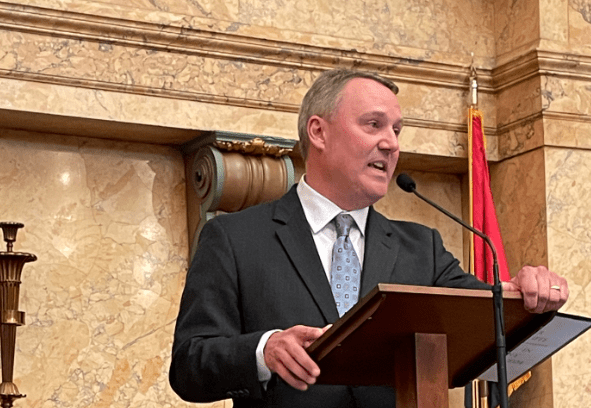
Sid Salter
Columnist Sid Salter says the worst drought in decades in Mississippi – impacting over 98 percent of both the state’s land area and population – is threatening farmers and consumers.
While the bulk of conversation in the state in recent days has been devoted to the election and college football fortunes, the most impactful conversation among farmers, ranchers, livestock producers and others in the state’s 9.72 billion agricultural economy.
The worst drought in decades in Mississippi – impacting over 98 percent of both the state’s land area and population – is threatening farmers and consumers in the production of crops, liver stock and barge transportation on the Mississippi River.
Why should non-farmers care? First, agriculture is part of the bedrock of the state’s economy and second, in a time of double-digit inflation in food prices, markets don’t need additional pressures driving prices.
How does drought affect Mississippi agriculture? The Mississippi State University Extension Service reports that in 2022, the state’s agriculture value reached $9.7 billion – with poultry production accounting for $3.8 billion, soybeans accounting for $1.8 billion and forestry posting $1,3 billion.
Rounding out the top five Mississippi crops in terms of agricultural value produced were corn at $631 million and cotton at $624 million. The sixth highest ag production in overall value was livestock at $456 million, followed by catfish production at $258 million.
Coming in at No. 8 was hay production at $164 million followed by sweet potatoes at $112 million. Specialty crops – fruit, nuts, vegetables, etc. – were 10th overall in Mississippi agriculture production at $111 million. Rice ($97 million), wheat ($36 million) and peanuts ($13 million) rounded out major crop value data for Mississippi farmers.
Water, or the scarcity of it, impacts production of all those crops. Even hay, which normally helps livestock herds survive the winter when grass isn’t growing, has been a victim of the drought. The lack of green grass has forced producers to begin feeding hay much earlier this year – if hay is available.
While southwest Mississippi has been the epicenter of the drought, the majority of Mississippi counties are presently in exceptional or extreme drought conditions. Many livestock producers have been forced to confront the possibility of liquidating their herds due to a lack of water and/or hay. Row crops have been impacted in terms of yields and soybeans crops face the lack of available barges to move their crops due to the perilously low level of the Mississippi River.
2023 marks the second consecutive year that the “Mighty Mississippi” is at historically low levels, exposing usually submerged sandbars and significantly disrupting barge shipping. The low levels of the Mississippi have allowed saltwater intrusion from the Gulf of Mexico at the mouth of the river to threaten drinking water for Louisiana residents.
From a trade standpoint, the U.S. Department of Agriculture reports that the volume of grain shipped on the Mississippi has dropped by half from the average of the past three years.
The drought has so far led to disaster declarations in 44 Mississippi counties as the state experienced the 13th driest September since 1895 and the 49th driest January through September on record since 1895, according to the National Integrated Drought Information Service.
Mississippi State Climatologist and MSU meteorology professor Mike Brown told leaders of Mississippi Farm Bureau last week in Jackson that drought conditions are expected to continue in the near term, but that winter weather models suggest that El Nino weather patterns this winter could bring significantly cooler temperatures and wetter conditions.
But for farmers already struggling this year, that may be too late to avoid significant impacts on row crop yields and on the ability to carry livestock herds through the winter.
Ted Kendall IV of Bolton, who along with his family operates the multigenerational, diversified Gaddis Farms operation, called the present drought “as bad as I’ve ever seen.” Kendall, a director on the Mississippi Farm Bureau board, said the organization had a lot of work to do in creating public awareness of the scope and impact of Mississippi’s current drought emergency “outside the agriculture community.”







